Alkaline Diet Benefits Explained Clearly

Written by
Natalie Hamilton
Reviewed by
Prof. William Dalton, Ph.D.The supposed advantages of an alkaline diet can largely be attributed to whole foods that are rich in nutrients, as opposed to impacting pH.
There is no concern of pH from food, as pH is strictly regulated by the kidneys and lungs, regardless of what we eat.
Urine pH can vary depending on what is being excreted, and does not reflect overall acidity in the body.
Plant-based, alkaline foods can help add more nutrients to the diet, but these foods cannot treat a disease.
Consider balancing alkaline foods and acid-forming foods in the diet for long-term behaviour changes, and evidence-based improvements in health.
Making gradual shifts from the former [diet] to whole foods, etc., tend to work better than extremes.
Article Navigation
The real benefits of the alkaline diet begin with understanding how foods affect your body after digestion, as foods leave metabolic debris that can impact urine pH. This concept categorizes foods as either acid-forming or alkaline-forming based on their mineral content. Your kidneys naturally regulate blood pH.
You may hear about increased energy or the prevention of disease associated with this diet. Science shows that these benefits are from eating nutrient-dense whole foods and not from altering pH. Think colorful vegetables and fruits that fill your system with vitamins. I've personally witnessed my clients feel renewed from this method.
We'll cut through the nonsense and get to what matters the most. The intention here is to evaluate how a fiber-based plant-based diet helps the body beyond the pH myth and theory. Forget magic answers for health and look to nutritional science. Let's then explore how food choices practically impact our health.
Science of Body pH Regulation
Your body has a powerful teamwork that allows it to maintain a strict balance of blood pH between 7.35 and 7.45. Your kidneys filter the acids from the blood into the urine, and your lungs help to control the amount of carbon dioxide in the system with every breath you take. This teamwork assures conditions remain stable for the performance of cellular functions. No amount of food can upset the delicate balance of this precise regulating system of biological systems.
Changes in urine pH merely reflect how the body eliminates metabolic waste. Acidic urine after meat or alkaline urine after greens indicates normal filtration. I tell clients that these variations indicate good kidney function, but not necessarily good overall health. Relax over the test sticks. They measure how effectively waste is eliminated.
Other protective mechanisms include the blazing acid barrier of the stomach and the acid mantle of the skin. These serve to destroy germs and furnish a protective barrier as well. Failure of the body to control its acid-base balance due to disease allows dangerous acidosis or alkalosis to develop, requiring medical treatment. Our dietary habits serve to nourish these mechanisms, but do not control them.
Kidney Functions
- Filter acids from bloodstream into urine continuously
- Reabsorb bicarbonate to maintain alkaline blood pH balance
- Adjust acid excretion based on dietary intake patterns
- Prevent blood pH fluctuations regardless of food choices
- Process metabolic waste from protein breakdown efficiently
- Maintain electrolyte balance while regulating acidity levels
Lung Contributions
- Release carbon dioxide during exhalation to reduce acidity
- Regulate breathing rate to control blood acidity precisely
- Work with kidneys in minute-to-minute pH balancing
- Maintain oxygen-carbon dioxide balance supporting pH stability
- Respond instantly to pH changes through respiratory rate
- Compensate for metabolic acids through CO2 elimination
Urine pH Misconceptions
- Variable pH indicates waste removal efficiency, not body health
- Acidic urine after meat consumption shows normal function
- Alkaline urine after vegetable intake demonstrates proper filtration
- pH strips measure waste acidity, not systemic pH balance
- Temporary changes reflect recent meals, not long-term health
- Consistent extreme values may indicate medical issues
Stomach Acid Role
- Maintains highly acidic environment (pH 1.5-3.5) for digestion
- Breaks down proteins and kills harmful microorganisms effectively
- Secretes hydrochloric acid independently of dietary influence
- Protected by mucous lining preventing tissue damage
- Acidity levels unaffected by alkaline food consumption
- Essential for nutrient absorption particularly vitamin B12
Skin Barrier Function
- Maintains acidic pH (4-6.5) as protective microbial barrier
- Creates hostile environment for pathogens through acidity
- Acid mantle formed by sebum and sweat secretions
- pH varies across body surfaces for specialized protection
- Disruption can lead to dryness, irritation and infections
- Topical products cannot alter body's internal pH systems
Top Alkaline Foods Comprehensive List
Learn about more than 30 alkaline foods in the forms of vegetables, fruits, nuts, and seeds. These plant-based foods offer benefits beyond their impact on the pH level. Spinach provides iron for energy production. Broccoli gives sulforaphane for cellular protection. Almonds provide vitamin E for skin protection. Each food type offers its own benefits to the plate.
Proper preparation is crucial for maintaining alkaline properties; steam vegetables lightly instead of boiling them. Soak nuts overnight for fuller nutritional benefits. Always eat the cucumber unpeeled to get the full fiber value. Sweet potatoes should be roasted to retain their fine flavor and preserve their nutritional content, especially potassium. These methods of preparation add the greatest food value.
Interestingly, lemons and limes, although initially acidic, leave an alkaline residue after digestion. The citrate in them is helpful for our kidneys. Raw foods generally have higher mineral content than their cooked forms. However, cooked tomatoes have more readily available lycopene. Balancing each method is sensible.

Spinach
- Nutrient Profile: Rich in vitamins A, C, K and minerals like iron and magnesium
- Alkaline Properties: High mineral content creates alkaline ash during digestion
- Preparation Tip: Light steaming preserves nutrients better than boiling
- Serving Idea: Add raw to smoothies or sauté with garlic for side dish
- Health Benefit: Contains antioxidants that combat oxidative stress in cells
- Unique Fact: Chlorophyll content supports blood health and detoxification processes
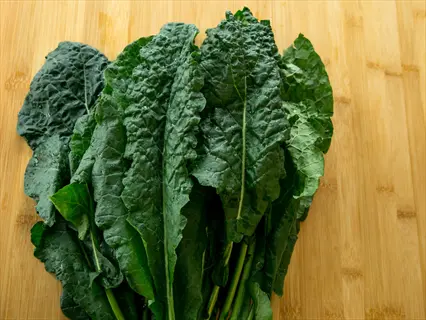
Kale
- Nutrient Profile: Excellent source of vitamin K, vitamin C and calcium
- Alkaline Properties: High potassium content helps balance body's acid levels
- Preparation Tip: Massage leaves with lemon juice to soften texture
- Serving Idea: Bake into crispy chips or blend into green soups
- Health Benefit: Sulforaphane compounds support natural detoxification pathways
- Unique Fact: Contains more iron per calorie than beef when consumed raw

Cucumber
- Nutrient Profile: Provides hydration with electrolytes like potassium and magnesium
- Alkaline Properties: High water content supports kidney filtration functions
- Preparation Tip: Leave skin on for maximum fiber and nutrient retention
- Serving Idea: Slice into water or make chilled cucumber salads
- Health Benefit: Silica content promotes healthy skin and connective tissues
- Unique Fact: Contains cucurbitacins that may inhibit cancer cell growth
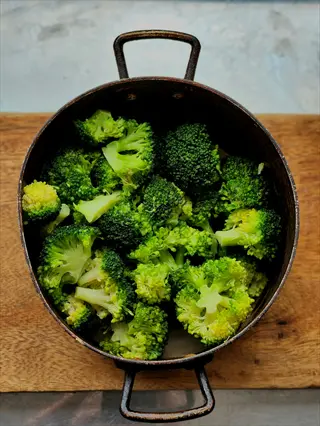
Broccoli
- Nutrient Profile: Rich in vitamins C, K, folate and dietary fiber
- Alkaline Properties: Sulfur compounds metabolize into alkaline residues
- Preparation Tip: Roast to enhance flavor while preserving nutrients
- Serving Idea: Add to stir-fries or enjoy raw with hummus dip
- Health Benefit: Glucoraphanin converts to sulforaphane with antioxidant effects
- Unique Fact: Sprouts contain 10-100 times more sulforaphane than mature heads

Celery
- Nutrient Profile: Contains vitamin K, potassium and beneficial phytonutrients
- Alkaline Properties: Sodium content helps maintain fluid and pH balance
- Preparation Tip: Chop and freeze for quick addition to cooked dishes
- Serving Idea: Blend into green juices or stuff with nut butter
- Health Benefit: Apigenin flavonoid reduces inflammation in the body
- Unique Fact: Negative-calorie food requiring more energy to digest than it provides

Beets
- Nutrient Profile: High in folate, manganese and antioxidant betalains
- Alkaline Properties: Mineral-rich composition supports alkaline balance
- Preparation Tip: Roast whole to enhance natural sweetness and nutrients
- Serving Idea: Grate raw into salads or blend into smoothies
- Health Benefit: Dietary nitrates convert to nitric oxide improving circulation
- Unique Fact: Betaine content supports liver detoxification functions

Apples
- Nutrient Profile: Good source of vitamin C and soluble fiber pectin
- Alkaline Properties: Malic acid metabolizes into alkaline compounds
- Preparation Tip: Choose organic varieties to avoid pesticide residues
- Serving Idea: Bake with cinnamon or slice into oatmeal bowls
- Health Benefit: Polyphenols support healthy gut microbiome balance
- Unique Fact: Quercetin content may help stabilize mast cell responses

Bananas
- Nutrient Profile: Excellent potassium source with vitamin B6 and fiber
- Alkaline Properties: High potassium counters acidic dietary effects
- Preparation Tip: Freeze overripe bananas for creamy smoothie base
- Serving Idea: Mash into pancake batter or oatmeal toppings
- Health Benefit: Resistant starch develops as bananas ripen supporting digestion
- Unique Fact: Contains dopamine precursor improving mood regulation
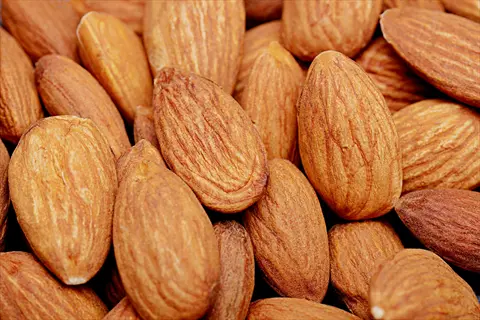
Almonds
- Nutrient Profile: Rich in vitamin E, magnesium and monounsaturated fats
- Alkaline Properties: Magnesium content contributes to alkaline residue
- Preparation Tip: Soak overnight to improve nutrient bioavailability
- Serving Idea: Make almond butter or sprinkle chopped on salads
- Health Benefit: Supports heart health through lipid profile improvement
- Unique Fact: Prebiotic properties feed beneficial gut bacteria

Lentils
- Nutrient Profile: Plant protein source with iron, folate and fiber
- Alkaline Properties: Magnesium and potassium create alkaline ash
- Preparation Tip: Cook with kombu seaweed to improve digestibility
- Serving Idea: Make lentil soups or sprout for raw salads
- Health Benefit: Soluble fiber helps regulate blood sugar levels
- Unique Fact: Among fastest-cooking legumes requiring no pre-soaking

Lemons
- Nutrient Profile: High vitamin C with flavonoids and potassium
- Alkaline Effect: Citric acid metabolizes into alkaline byproducts
- Preparation Tip: Add juice to water first thing each morning
- Serving Idea: Use zest and juice in salad dressings and sauces
- Health Benefit: Stimulates liver detoxification enzymes
- Unique Fact: Contains limonene with potential anti-cancer properties
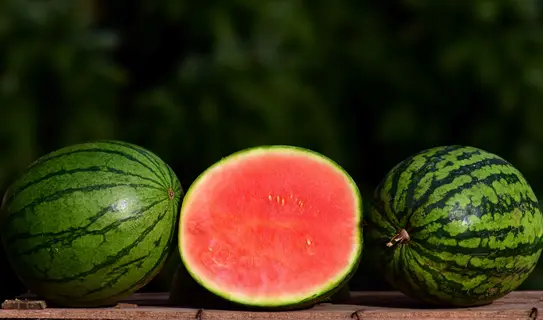
Watermelon
- Nutrient Profile: Rich in lycopene, vitamins A and C
- Alkaline Properties: High water and mineral content
- Preparation Tip: Chill before serving to enhance flavor
- Serving Idea: Blend with mint for refreshing summer drink
- Health Benefit: Citrulline amino acid supports blood flow
- Unique Fact: Contains glutathione for cellular detoxification

Cantaloupe
- Nutrient Profile: Excellent source of vitamin A and beta-carotene
- Alkaline Properties: Potassium-rich composition
- Preparation Tip: Scoop balls using melon baller for salads
- Serving Idea: Wrap with prosciutto for sweet-savory appetizer
- Health Benefit: Zeaxanthin supports eye health protection
- Unique Fact: Contains enzymes that aid protein digestion

Parsley
- Nutrient Profile: Vitamin K powerhouse with vitamin C and iron
- Alkaline Properties: Chlorophyll-rich with mineral balance
- Preparation Tip: Add at end of cooking to preserve nutrients
- Serving Idea: Make tabbouleh salad with quinoa and vegetables
- Health Benefit: Apigenin content may inhibit cancer growth
- Unique Fact: Natural breath freshener with antimicrobial oils

Basil
- Nutrient Profile: Contains vitamin K, manganese and essential oils
- Alkaline Properties: Eugenol compounds support alkaline balance
- Preparation Tip: Tear leaves instead of chopping to preserve oils
- Serving Idea: Blend into pesto with pine nuts and olive oil
- Health Benefit: Anti-inflammatory effects comparable to NSAIDs
- Unique Fact: Volatile oils may help combat anxiety and stress
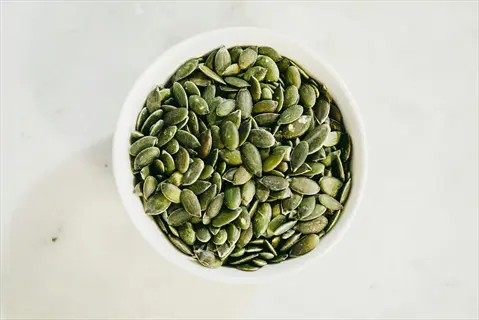
Pumpkin Seeds
- Nutrient Profile: Rich in zinc, magnesium and plant-based protein
- Alkaline Properties: High magnesium creates alkaline residue
- Preparation Tip: Soak and dehydrate for improved digestibility
- Serving Idea: Sprinkle on soups or add to trail mixes
- Health Benefit: Tryptophan content supports serotonin production
- Unique Fact: Contains cucurbitacin with anti-parasitic properties
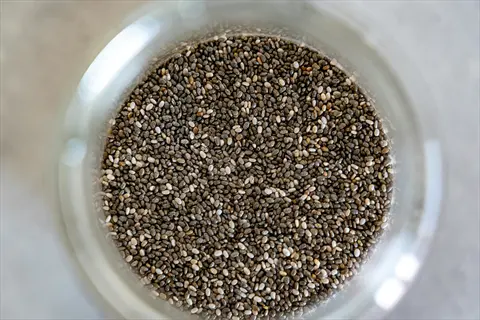
Chia Seeds
- Nutrient Profile: Omega-3 fatty acids, fiber and calcium
- Alkaline Properties: Calcium and magnesium mineral content
- Preparation Tip: Soak to form gel for puddings and dressings
- Serving Idea: Make overnight chia pudding with almond milk
- Health Benefit: Soluble fiber slows carbohydrate absorption
- Unique Fact: Absorb 10 times their weight in water

Green Tea
- Nutrient Profile: Rich in EGCG catechins and L-theanine
- Alkaline Properties: Mineral content supports alkaline balance
- Preparation Tip: Brew below boiling (80°C/176°F) to preserve compounds
- Serving Idea: Drink plain or add lemon for enhanced absorption
- Health Benefit: May boost metabolism and fat oxidation
- Unique Fact: Contains theanine that crosses blood-brain barrier

Mineral Water
- Nutrient Profile: Contains calcium, magnesium and bicarbonates
- Alkaline Properties: Natural bicarbonates neutralize acidity
- Preparation Tip: Choose naturally carbonated over artificially carbonated
- Serving Idea: Add citrus slices for flavor enhancement
- Health Benefit: May improve hydration status markers
- Unique Fact: Contains silica that supports collagen formation
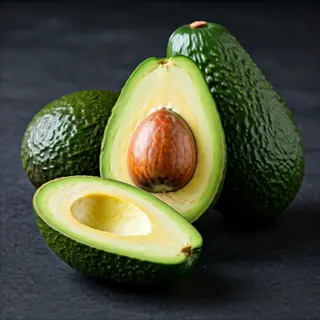
Avocado
- Nutrient Profile: Monounsaturated fats, fiber, potassium and folate
- Alkaline Properties: Mineral-rich with potassium dominance
- Preparation Tip: Sprinkle cut surfaces with lemon juice to prevent browning
- Serving Idea: Mash with lime juice for guacamole
- Health Benefit: Oleic acid supports healthy cholesterol levels
- Unique Fact: Contains mannoheptulose sugar that may slow aging

Asparagus
- Nutrient Profile: Rich in folate, vitamins A, C, K and chromium
- Alkaline Properties: Glutathione supports detoxification pathways
- Preparation Tip: Roast or grill quickly to preserve nutrients
- Serving Idea: Wrap with prosciutto or add to omelets
- Health Benefit: Asparagine amino acid acts as natural diuretic
- Unique Fact: Contains prebiotic fiber that feeds gut bacteria

Bell Peppers
- Nutrient Profile: Vitamin C powerhouse with vitamin A and B6
- Alkaline Properties: High vitamin C metabolizes to alkaline residue
- Preparation Tip: Roast to bring out sweetness and flavor
- Serving Idea: Stuff with quinoa and vegetable mixtures
- Health Benefit: Capsanthin antioxidant supports eye health
- Unique Fact: Red peppers have twice vitamin C of green ones

Sweet Potatoes
- Nutrient Profile: Rich in beta-carotene, vitamin C and manganese
- Alkaline Properties: Potassium-rich with mineral balance
- Preparation Tip: Bake whole instead of boiling to preserve nutrients
- Serving Idea: Mash with cinnamon for nutrient-dense side
- Health Benefit: Anthocyanins in purple varieties are anti-inflammatory
- Unique Fact: Contain sporamins that repair oxidative damage

Zucchini
- Nutrient Profile: Good source of manganese, vitamin C and fiber
- Alkaline Properties: High water and mineral content
- Preparation Tip: Spiralize into noodles for low-carb alternative
- Serving Idea: Grill slices with herbs and olive oil
- Health Benefit: Contains lutein and zeaxanthin for eye protection
- Unique Fact: Flower blossoms are edible and nutritious

Cabbage
- Nutrient Profile: Rich in vitamin K, C and glucosinolates
- Alkaline Properties: Sulfur compounds metabolize to alkaline ash
- Preparation Tip: Ferment into sauerkraut for probiotic benefits
- Serving Idea: Make coleslaw with apple cider vinegar dressing
- Health Benefit: Indole-3-carbinol supports hormone balance
- Unique Fact: Purple varieties contain anthocyanin antioxidants

Cauliflower
- Nutrient Profile: Vitamin C, K, folate and choline
- Alkaline Properties: Glucosinolates support detoxification
- Preparation Tip: Rice in food processor for grain substitute
- Serving Idea: Mash as potato alternative or roast whole
- Health Benefit: Sulforaphane activates protective enzymes
- Unique Fact: Contains glucoraphanin that converts to sulforaphane
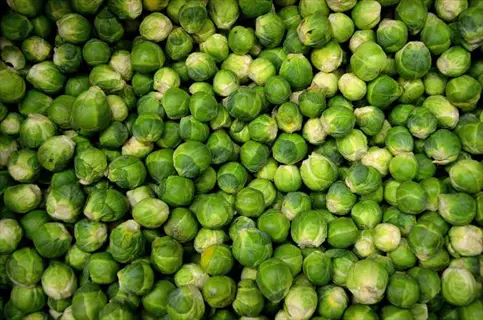
Brussels Sprouts
- Nutrient Profile: Rich in vitamin K, C and kaempferol
- Alkaline Properties: Glucosinolate content supports alkalinity
- Preparation Tip: Roast cut-side down for caramelization
- Serving Idea: Shave raw into salads with lemon dressing
- Health Benefit: Contains indole-3-carbinol for cellular protection
- Unique Fact: Miniature cabbage-like buds on thick stalks

Pears
- Nutrient Profile: Good fiber source with copper and vitamin C
- Alkaline Properties: Mineral content creates alkaline residue
- Preparation Tip: Poach in cinnamon-infused water for dessert
- Serving Idea: Add to green salads with nuts and cheese
- Health Benefit: Pectin fiber supports digestive regularity
- Unique Fact: Contains boron mineral for bone density support

Berries
- Nutrient Profile: Antioxidant-rich with vitamins C, K and fiber
- Alkaline Properties: Anthocyanins metabolize to alkaline byproducts
- Preparation Tip: Freeze immediately after purchase to preserve nutrients
- Serving Idea: Blend into smoothies or top oatmeal
- Health Benefit: Ellagic acid may help protect against cancer
- Unique Fact: Contain fisetin flavonoid that supports brain health

Mushrooms
- Nutrient Profile: Contain selenium, B vitamins and ergothioneine
- Alkaline Properties: Potassium-rich composition
- Preparation Tip: Sauté with garlic to enhance flavor and nutrients
- Serving Idea: Add to soups, stews or plant-based burgers
- Health Benefit: Beta-glucans support immune system function
- Unique Fact: Only plant source of vitamin D when sun-exposed
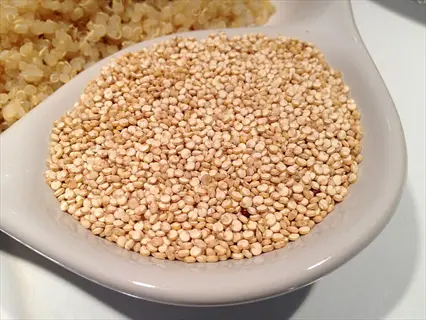
Quinoa
- Nutrient Profile: Complete protein with all essential amino acids
- Alkaline Properties: Magnesium and potassium content
- Preparation Tip: Rinse thoroughly to remove bitter saponins
- Serving Idea: Use as base for grain bowls with vegetables
- Health Benefit: Contains quercetin and kaempferol flavonoids
- Unique Fact: Actually a seed, not a true cereal grain

Cilantro
- Nutrient Profile: Rich in vitamins A, K and antioxidants
- Alkaline Properties: Chelates heavy metals for elimination
- Preparation Tip: Add just before serving to preserve flavor
- Serving Idea: Blend into chutneys or fresh salsas
- Health Benefit: May help remove mercury and other metals
- Unique Fact: Contains dodecanal with antibacterial properties
Acidic Foods to Limit
Prominent acid-forming foods include animal proteins, including beef and dairy foods themselves. The sulfur amino acids and phosphates present in these foods contribute to an increased acid load during the process of their metabolic utilization. Red meat, although a significant source of iron, can be inflammatory when consumed in excess. The foods that constitute processed snacks also provide other synthetic products.
Not all acidic foods are worthless. Eggs give a complete protein, while poultry is a good source of lean nutrients. The important thing is moderation in a balanced diet. Limit red meat to small portions, two to three times a week. Choose fermented dairy products for optimal digestion.
Practical reduction strategies create sustainability. Trade processed snacks for homemade vegetable chips. Use mushrooms as a substitute for beef in recipes. Use whole grains rather than refined. I am helping my clients make a gradual transition to consuming sufficient protein through a diet rich in plant-based foods.
Red Meat
- Why Acidic: High in sulfur-containing amino acids and phosphates
- Examples: Beef, lamb, pork, venison
- Health Note: Associated with inflammation when consumed excessively
- Moderation Tip: Limit to 3-4 oz servings 2-3 times weekly
- Alternative: Replace with plant proteins like lentils or tofu
Poultry
- Why Acidic: Contains purines and phosphorous compounds
- Examples: Chicken, turkey, duck
- Health Note: Skin increases saturated fat content significantly
- Moderation Tip: Choose skinless breast meat over dark meat
- Alternative: Use mushrooms as meat substitute in recipes
Dairy Products
- Why Acidic: High phosphorus content and casein proteins
- Examples: Cheese, milk, yogurt, butter
- Health Note: Can trigger inflammation in lactose-intolerant individuals
- Moderation Tip: Opt for fermented options like kefir in small portions
- Alternative: Almond or oat milk for calcium without acidity
Refined Grains
- Why Acidic: Processing removes alkaline minerals, leaving acidic compounds
- Examples: White bread, pasta, white rice, cereals
- Health Note: Rapidly converts to sugar spiking insulin levels
- Moderation Tip: Combine with vegetables to balance meal acidity
- Alternative: Choose whole grains like quinoa or brown rice
Processed Foods
- Why Acidic: Artificial additives, preservatives and refined sugars
- Examples: Chips, cookies, frozen meals, sugary snacks
- Health Note: Often lack nutrients while adding empty calories
- Moderation Tip: Read labels for sodium and additive content
- Alternative: Prepare homemade snacks using whole ingredients
Eggs
- Why Acidic: Sulfur-containing amino acids in egg whites
- Examples: Whole eggs, egg whites, egg-based products
- Health Note: Yolks contain beneficial nutrients despite acidity
- Moderation Tip: Limit to 1-2 daily with vegetable-rich meals
- Alternative: Chia or flax seeds as binding agents in baking
Alcohol
- Why Acidic: Metabolizes into acetic acid during processing
- Examples: Beer, wine, spirits, cocktails
- Health Note: Dehydrates body and stresses liver functions
- Moderation Tip: Follow 1 drink daily max with equal water intake
- Alternative: Herbal teas or infused waters for social occasions
Caffeinated Beverages
- Why Acidic: Contains methylxanthines that increase acid production
- Examples: Coffee, black tea, energy drinks, colas
- Health Note: Can disrupt mineral absorption when consumed excessively
- Moderation Tip: Limit to 1-2 servings before noon daily
- Alternative: Green tea or roasted grain beverages
Proven Alkaline Diet Benefits
The benefits of an alkaline diet, in truth, are derived from whole foods with their nutrient load, rather than from shifts in pH. Citrus citrate, for example, supplies the body with kidney health by preventing stone formation. High-fiber vegetables help in weight management through satiety. Antioxidants from fruits and vegetables with color pigments prevent natural cellular inflammation. These mechanisms provide the real benefits.
Scientific research indicates how these foods work within the human body. Choices that contain potassium, such as spinach, regulate blood pressure, which aids in support for the heart. Almonds have magnesium to help muscle function. Cruciferous vegetables stimulate detox pathways. No food changes your pH. Just pay attention to repeated inclusion.
Practical benefits of the diet include natural weight control and lower-calorie-density foods. A lower level of inflammatory markers indicates less joint discomfort. I have had clients be able to increase energy levels through emphasis and focus on nutrient density. Yet the benefits have limitations. This diet does not cure diseases nor replace medical therapy. Use plants as the basis for meals.
Enhanced Nutrient Intake
- Mechanism: High consumption of vegetables, fruits, and legumes
- Key Nutrients: Vitamins A/C/K, magnesium, potassium, and fiber
- Health Impact: Supports immune function and cellular repair
- Evidence Note: Plant-rich eating patterns correlate with longer lifespans
- Practical Tip: Aim for 5+ vegetable servings daily
Kidney Stone Prevention
- Mechanism: Alkaline urine reduces calcium oxalate crystallization
- Key Factor: Citrate from citrus inhibits stone formation
- Health Impact: Lowers recurrence risk significantly
- Evidence Note: Whole foods provide superior citrate absorption
- Practical Tip: Consume lemon water daily
Weight Management Support
- Mechanism: High fiber content promotes satiety
- Key Factor: Low-calorie density of plant foods
- Health Impact: Sustainable weight loss (1-2 lbs/0.5-1 kg weekly)
- Evidence Note: Associated with healthier body composition
- Practical Tip: Start meals with vegetable-based soups
Blood Pressure Control
- Mechanism: Potassium counters sodium effects
- Key Factor: Magnesium relaxes blood vessels
- Health Impact: Supports healthy cardiovascular function
- Evidence Note: Dietary patterns align with DASH principles
- Practical Tip: Snack on potassium-rich bananas and avocados
Reduced Inflammation
- Mechanism: Antioxidants neutralize free radicals
- Key Factor: Phytonutrients like flavonoids and carotenoids
- Health Impact: Lowers inflammatory markers in the body
- Evidence Note: Effects observed independent of pH changes
- Practical Tip: Include turmeric and berries regularly
Muscle Preservation
- Mechanism: Potassium buffers metabolic processes
- Key Factor: Reduced muscle protein breakdown
- Health Impact: Maintains lean mass during aging
- Evidence Note: Particularly relevant for postmenopausal women
- Practical Tip: Combine alkaline greens with plant proteins
Sustainability Challenges
Keeping to an alkaline diet has serious sustainability challenges, including practicality and financial concerns. Organic food can be quite pricy, and meal preparation takes a great deal of time management. When reducing meat products, concerns may arise about protein adequacy. Eating out can be challenging due to the limited availability of alkaline foods.
Practical answers to these questions make it a sustainable way of living. Opt for cabbage and carrots in season, which are cheap, rather than expensive imports. Use frozen vegetables in winter. For inexpensive protein substitutes for meat, I suggest batch cooking pulses. These ensure all the essential amino acids are included.
Efficient meal planning solves time constraints. Devote Sundays to roasting sheets of vegetables and assembling mason jar salads. For eating out, research menus ahead of time and request olive oil dressings. Gradually transition by keeping familiar foods, in particular, to start with. These strategies cultivate lasting habits.
Protein Adequacy Concerns
- Challenge: Limited animal proteins may lead to deficiencies
- Solution: Combine legumes with grains for complete proteins
- Example: Lentils with brown rice or hummus with whole-grain pita
- Alternative Proteins: Tofu (12g/100g), tempeh (19g/100g), edamame (11g/100g)
- Preparation Tip: Batch-cook plant proteins weekly
- Supplement Note: Consider B12 if eliminating all animal products
Budget Constraints
- Challenge: Organic produce costs 20-30% more than conventional
- Solution: Prioritize seasonal/local produce and frozen options
- Budget Staple: Cabbage ($0.50/lb ≈ $1.10/kg) and carrots ($0.80/lb ≈ $1.76/kg)
- Cost-Cutter: Buy whole produce instead of pre-cut items
- Plan Tip: Use vegetable scraps for homemade broth
- Store Hack: Shop farmers markets at closing for discounts
Time Management
- Challenge: 45+ minutes daily prep vs 15 minutes for processed foods
- Solution: Sunday batch-prep with proper storage
- Efficient Prep: Roast sheet pans of mixed vegetables
- Time Saver: Pre-wash greens and store in airtight containers
- Quick Meal: Pre-assemble mason jar salads for grab-and-go
- Tool Tip: Use food processor for quick chopping
Dining Out Difficulties
- Challenge: Limited alkaline options at restaurants
- Solution: Customize orders and research menus ahead
- Order Strategy: Substitute starches with extra vegetables
- Restaurant Hack: Request olive oil/lemon instead of dressings
- Cuisine Tip: Choose Mediterranean or Asian plant-focused options
- Portion Control: Box half before eating to avoid overindulgence
Taste Adaptation Period
- Challenge: Reduced salt/sugar initially tastes bland
- Solution: Gradually reduce processed flavors over 3 weeks
- Flavor Boosters: Nutritional yeast, herbs, citrus zest, garlic
- Texture Trick: Roast vegetables for caramelization
- Transition Tip: Start with 50% familiar foods in meals
- Mindset Note: Taste buds adapt within 21 days typically
5 Common Myths
Alkaline foods increase blood pH to prevent disease
Blood pH is strictly controlled by the kidneys and lungs in the range of 7.35-7.45 and is unaffected by diet. Only the pH of the urine is modified by alkaline foods, since the body eliminates excess minerals in the urine! The digestive system burns all foods, quickly breaking them down into the elementary components, and the blood receives these after they have been subjected in the various organs to a close pH balancing process. Nothing in the way of diet can overcome this highly exact biological regulatory system that keeps the organs in a state of however perfected, internal equilibrity.
Osteoporosis can be cured by the alkaline diet because it helps prevent calcium from leaching from bones.
Osteoporosis prevention will come from adequate calcium and vitamin D input and weight-bearing exercise and not through pH manipulation. Foods high in protein serve to help bones through stimulating the production of IGF-1 which builds bone density. The acid ash hypothesis is void of clinical evidence and research has shown that there is no correlative relationship between dietary acid load and fracture risk. The health of bones depends on hormonal balance and effectiveness of nutrient absorption and not urinary pH values.
Since cancer cells cannot live in an alkaline environment that means that this diet prevents cancer
Cancer cells create their own acidic environment due to faulty metabolism but diet does not affect that localized pH discrepancy. The cancer prevention effects of an alkaline diet are based on the consumption of plants high in antioxidants that combats DNA damage instead of a change in pH. Huge cohort studies done show no relationship between systemic pH and cancer with the protective effects attributed to phytochemicals in cruciferous vegetables not limited to but including sulforaphane that counteract carcinogens at the cellular level.
Consuming alkaline water is a necessity to restore acidity to the body and bring health enhancing qualities
Pure water maintains hydration but does not possess special alkaline properties. The highly acidic environment of the stomach (pH 1.5-3.5) neutralizes the alkaline water immediately upon delivery to the stomach. Any minerals absorbed are utilized through normal metabolic pathways that are utilized for food intake. Studies show nothing effect follows from the consuming of alkaline or normal water for the hydrated condition or health state of the organism when the mineral contents are controlled from food sources.
Urine pH test strips offer an accurate measurement of the body's total acid load
Urine pH indicates only efficiency of waste elimination, not systemic balance. The kidneys excrete excess acids or bases in order to keep the blood pH stable, so variability of urine is a normal physiological condition. Factors such as state of hydratation, time of day and recent meals cause natural fluctuations not necessarily related to health status. Blood pH necessitates laboratory blood tests for accurate measurement, because urine does not measure the internal acid-base balance.
Conclusion
The benefits of an alkaline diet are not in alkalinizing foods, but rather in nutrient-dense whole food choices. The kidneys and lungs maintain a strict balance of blood, regardless of the foods eaten. Rely more on sustainable additions of things like vegetables, fruits, and legumes for achieving health without the unrealistic restrictions.
Accept a balanced approach that allows for limited amounts of acid-forming foods. Eggs give you protein, and milk gives you calcium. I suggest making gradual improvements, such as introducing one new vegetarian meal per week. Abrupt restrictions often lead to failure, while small changes lead to lasting habits.
Place priority on health principles that are evidence-based over pH theories. Meals should center on foods high in color for vitamins and antioxidants. Include lean sources of protein and healthy fats. Remember, no food alters your basic blood chemistry. Make choices that provide your body with practical and systematic nutrition.
External Sources
Frequently Asked Questions
What are the main benefits of following an alkaline diet?
The primary alkaline diet benefits come from increased consumption of nutrient-dense plant foods, not pH alteration. This approach enhances mineral intake, supports kidney function, aids weight management, reduces inflammation, and provides antioxidants. However, blood pH remains strictly regulated by biological systems regardless of food choices.
Can alkaline foods change your blood pH levels?
No food can alter blood pH, which is tightly maintained between 7.35-7.45 by kidneys and lungs. Alkaline foods only affect urine pH during waste elimination. The digestive system neutralizes all foods before nutrients enter the bloodstream, making systemic pH changes impossible through diet alone.
What are the most effective alkaline-forming foods?
The strongest alkaline-forming foods include plant-based options rich in minerals:
- Leafy greens like spinach and kale for magnesium
- Citrus fruits like lemons for citrate
- Cruciferous vegetables including broccoli
- Mineral-rich options such as almonds and avocados
- Hydrating choices like cucumber and celery
Is lemon water truly alkaline for the body?
While acidic initially, lemon water has alkalizing effects after metabolism due to its mineral content. It provides citrate that helps prevent kidney stones and offers vitamin C. However, it doesn't alter systemic pH since stomach acid neutralizes it immediately. Benefits come from nutrients, not pH properties.
How does the alkaline diet compare to anti-inflammatory eating?
Both emphasize plant foods, but anti-inflammatory diets specifically target inflammation reduction while alkaline diets focus on mineral balance. Many principles overlap since alkaline-forming foods like berries and greens are naturally anti-inflammatory. The key difference is alkaline diets emphasize urine pH impact, while anti-inflammatory approaches prioritize cellular responses.
Are eggs considered acidic in an alkaline diet?
Eggs are acid-forming due to sulfur-containing proteins, but they provide valuable nutrients like choline and protein. They can be consumed moderately (1-2 daily) alongside alkaline vegetables. Complete avoidance isn't necessary since the body compensates for dietary acids through its natural pH regulation systems.
What are common mistakes people make with alkaline diets?
Major mistakes include:
- Overemphasizing pH strips instead of nutrient quality
- Eliminating all animal proteins risking deficiencies
- Ignoring sustainable implementation for quick results
- Believing alkaline water has special properties
- Assuming diet can override biological pH regulation
Can an alkaline diet prevent serious health conditions?
While nutrient-dense alkaline foods support health, they don't prevent diseases through pH changes. Benefits like reduced cancer risk come from antioxidants in plants, not alkalinity. The diet complements but doesn't replace medical treatments. Focus should be on whole foods' nutritional value rather than pH claims.
How do kidneys and lungs maintain pH balance?
The kidneys regulate pH by filtering acids into urine and reabsorbing bicarbonate. Lungs control carbon dioxide levels through breathing rate adjustments. Together they maintain blood pH within 7.35-7.45 constantly. This system operates independently of diet, making food-induced pH changes impossible at the systemic level.
What does urine pH actually indicate about health?
Urine pH only shows waste elimination efficiency, not overall health. It naturally fluctuates based on hydration, recent meals, and kidney function. Acidic urine after meat consumption or alkaline urine after vegetables simply reflects normal filtration. Blood tests are required for actual pH status assessment.

